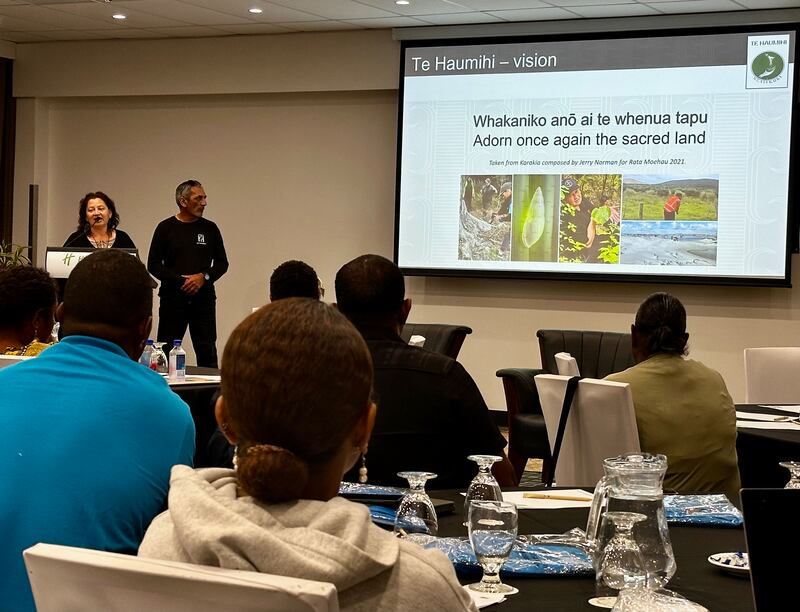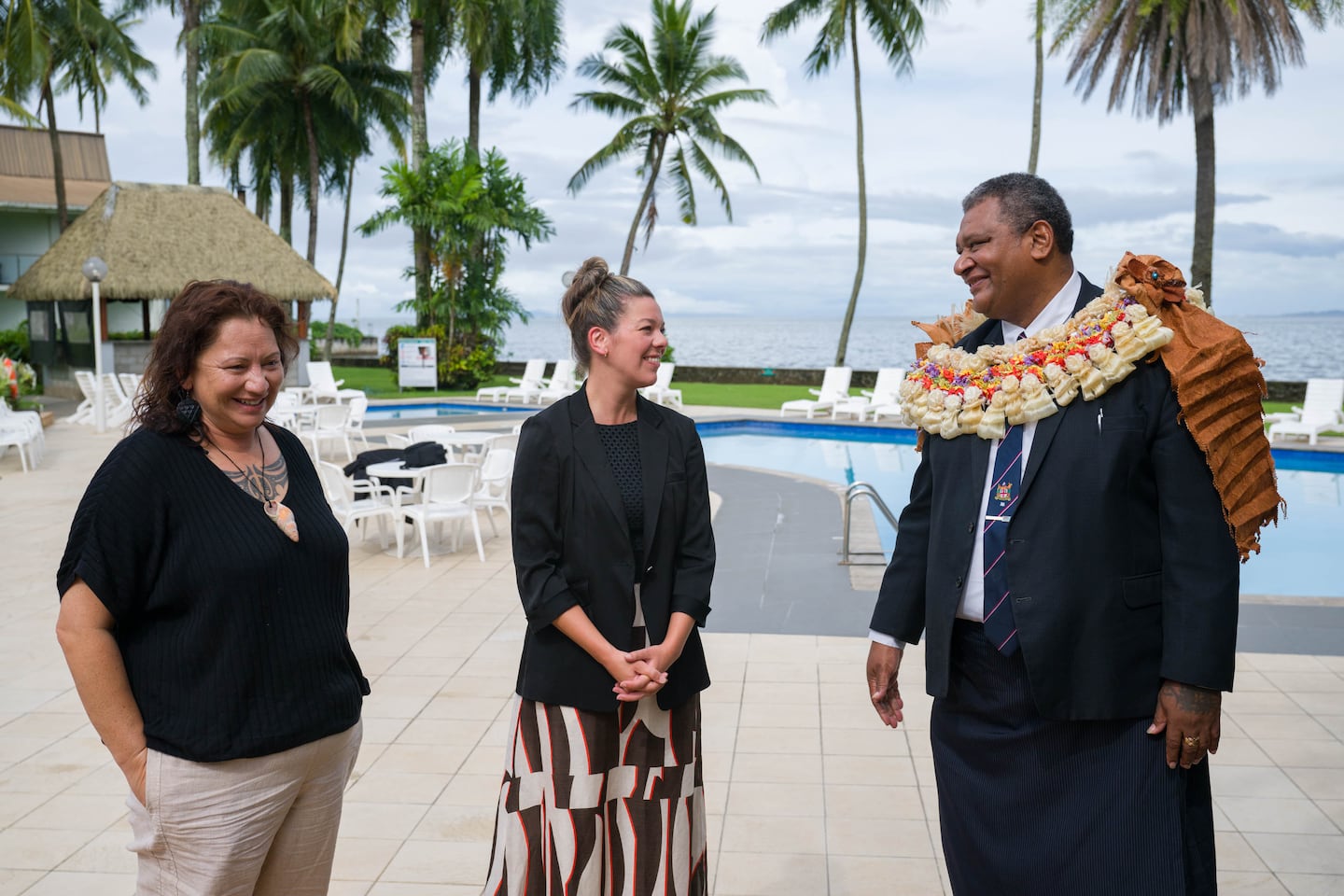Almost a hundred representatives from Aotearoa, Australia, Papua New Guinea, Fiji, and the Solomon Islands gathered in Suva, Fiji last week for the Oceania First Voices Regional Forum, where indigenous voices shared their experiences about the accelerating climate, ocean and nature crises.
The forum was organised by the World Wide Fund For Nature (WWF) Pacific on the basis that the voices of indigenous communities would be key to solving the climate and biodiversity crises – but only if these voices are heard.
Ngāti Kurī attended alongside WWF New Zealand to the event.
Ngāti Kurī Trust Board executive director Sheridan Waitai and Ngāti Kurī biosecurity and biodiversity lead Toka Maaka saw the Oceania First Voices Regional Forum as an opportunity to share stories of the work they are doing locally and their aspirations for the future.

Waitai said it was upsetting to hear other indigenous leaders describe the impact climate change was causing on their lands, waters and islands.
But she said it was inspiring that the actions communities were taking were grounded in traditional knowledge and cultural practice.
“Governments need to get over their fear of indigenous leadership and self-determination. What have we got to lose? Support and investment is needed to scale up actions of indigenous practitioners globally to counteract climate change,” Waitai said.
Maaka said Indigenous peoples across the Pacific wanted the same things for the environment,
“We have different pathways to get there for ourselves and each other. We need each other. Spending time to understand one another at a community level is critical to enabling us to save our homes for all our grandchildren,” Maaka said.
Earlier this year, Ngāti Kurī partnered with the Aboriginal Girringun people of Queensland to exchange knowledge and to learn about cultural fire practices to keep communities, flora, and fauna, safe.
Both Waitai and Maaka hope the forum in Fiji will result in similar knowledge-sharing and advocacy projects in the future.
WWF New Zealand chief executive Dr Kayla Kingdon-Bebb said indigenous communities across Oceania “hold the key to solving” the climate and biodiversity crises.
“Māori and other indigenous peoples around the world have been expertly caring for our natural resources since time immemorial, and know intrinsically that nature is something we depend on and should cherish, rather than just a commodity for us to exploit,” Kingdon-Bebb said.
“If we are going to make any progress in tackling climate change and nature loss in Aotearoa, then we must embrace mātauranga Māori and the deep knowledge and expertise held by tangata whenua on how to be sustainable stewards of the natural world.”




